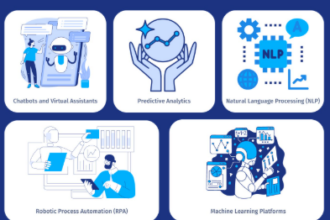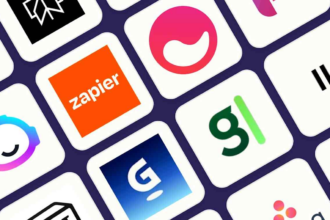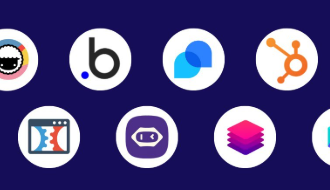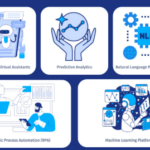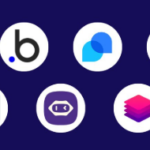In this article, Ill explain why school and learning matter for each of us and for the world around us. Education helps us think clearly, pick up useful skills, and gain chances we might never have found.
It also fuels economies, boosts fairness, and guides personal growth from childhood to old age. When we see how powerful learning can be, we start to treat it as the lifelong tool that moves us all forward.
Overview
Education is the bedrock of any healthy, forward-moving society. It shapes people, knits neighborhoods together, and steadies whole nations. Yet learning is about more than memorizing facts from a book;
It sparks curiosity, builds character, and hands us the skills we need to meet daily challenges. Once we see how far-reaching the benefits of education are, from stronger economies to more peaceful communities, its true value comes clearly into focus.
Why Education Is Important

Empowers Individuals
Education is powerful because it puts real tools into peoples hands. Teachers and classes show learners how the world works, so they know their rights, duties, and options.
That knowledge sparks confidence, helping graduates choose careers, spend wisely, stay healthy, and speak up on social issues. With practice in reading, math, science, and the arts, students learn to question ideas, solve problems, and explain their thoughts clearly.
Better Career and Employment Opportunities

Education is one of the strongest tools for building a better career because it gives people the knowledge and skills todays employers expect. Most job listings ask for at least a high-school diploma, and the more you study the sweeter the pay and security that usually comes with it.
Classroom learning-and even online courses-teach key abilities like clear communication, quick problem-solving, and theflexibility to adapt when things change, all of which managers list as top team-player qualities.
Trade schools, apprenticeships, and short technical programs also offer hands-on training in fields like plumbing, coding, or nursing, helping graduates stand out in a busy job market. Put together, all these learning paths turn a simple application into a serious ticket for climbing the career ladder and enjoying steady success in a world that now runs on knowledge.
Economic Growth and National Development

Education is at the heart of economic growth and national progress. When workers are well-trained, they get more done, think up new ideas, and do their jobs with less waste. That added skill lets them tackle tricky tasks, smooth out office procedures, and even start their own companies.
Schools and colleges also lower jobless rates by teaching people what industries-from coding to nursing-really need. On a bigger level, nations that invest in books and classrooms pull in more investors, speed up tech breakthroughs, and keep their economies strong. In short, pouring money into education means betting on a countrys future wealth and calm.
Reduces Poverty
Education has a proven track record when it comes to lifting families out of poverty. People who finish school land jobs faster and typically earn bigger paychecks. With a steadier income, they can upgrade housing, healthcare, and food, slowly turning dreams into reality.
In developing nations, programs that make sure girls and marginalized groups stay in class already show clear, uplifting results by narrowing income gaps and boosting community stamina.
Promotes Equality and Social Justice

Education is one of the strongest tools we have for making the world fairer. When schools, libraries, and training centers are open to all—no matter where someone comes from, what color their skin is, or how much money their family has—people can dream bigger and do better. Good classes and caring teachers help break the grip of poverty and old habits of discrimination, giving usually ignored groups a real shot at success.
Learning about rights, kindness, and fairness makes graduates more likely to speak up when they see wrongdoing and to cheer for rules that include everyone. Over time, school builds empathy and respect between neighbors, two must-haves if we want a society where each person can grow and pitch in.
Enhances Civic Participation
People with diplomas and degrees are much more likely to vote, pitch in at local clean-ups, or run for neighborhood council. Schooling shows how laws get made, where tax dollars go, and why a traffic stop matters beyond the road.
Because of that bigger picture, educated citizens usually show up at polls, raise their hands on climate issues, and keep watch on the leaders they choose.
Improves Health and Well-Being
Education sharpens people’s minds and, surprisingly, their bodies too. When kids learn about germs, balanced plates, and simple vaccines, those lessons stick with them. Well-informed grown-ups also grasp a doctor’s orders, book checkups on time, and sidestep needless health traps.
Take mothers who finish school: they tend to lose fewer babies and raise sturdier families. Classrooms push soccer, dances, and even quiet reading, planting moves and moods that last long after the final bell. Communities full of book-smart neighbors weigh choices more wisely, easing the load on crowded clinics. In the end, learning hands folks the tools to guide their own health and chase longer, brighter tomorrows.
Encourages Innovation and Creativity
One of the coolest extras you get from education is a spark for innovation. When you tinker with different ideas, solve puzzles in class, or follow a wild research hunch, your brain learns to think outside the box.
Classrooms, labs, studios, and libraries then become mini- incubators where fresh tech, art, and science can pop up. From smartphones to new vaccines, countless breakthroughs started with nothing more than a curious student and a patient teacher.
Confidence and Personal Growth

Education builds confidence and personal growth by showing people what they can do, teaching new skills, and helping them reach goals that matter to them. With each test passed, paper finished, or project completed, self-esteem gets a little boost. Classes and study sessions stir curiosity, train critical thought, and demand patience; these habits mix to form the resilience that lets learners stand firm when life gets tough.
School also opens windows to other cultures, beliefs, and ideas, widening the mind and painting a bigger picture of the world and one¼s place in it. Step by step, through a formula learned, a lively debate, or a problem finally cracked, education sculpts a stronger, more certain person ready to succeed at home, work, and beyond.
Conclusion
In short, school and learning really drive personal growth, community progress, and even how a nation moves forward. Education gives people the know-how, skills, and self-belief they need to live full lives and pitch in where they live. By boosting job chances, health, fairness, voting habits, and world peace, lessons reach almost every part of daily life.
Classes help break poverty chains, spark fresh ideas, and knit stronger neighborhoods together. So when a government or family puts money and time into learning, they are really buying a brighter, fairer tomorrow for everyone around them. Its power is huge-it unlocks human gifts and carves the path to a better planet.

